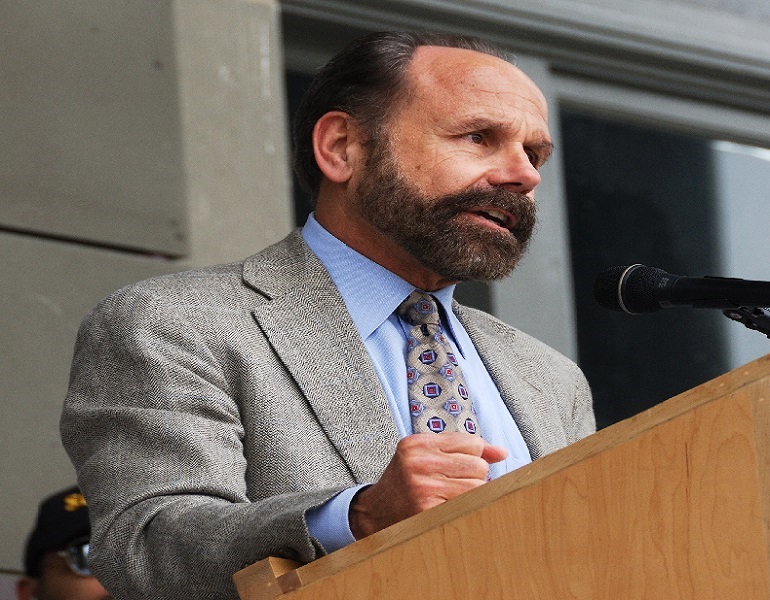The bankruptcy filing by PG&E may protect the company from current and future financial demands, but it should lead to the breakup of the long-established utility, according to state Senator Jerry Hill.
Acknowledging that it goes against his own free-enterprise instincts, Hill said PG&E has proven that it cannot be a private for-profit company and has to be restructured as a public utility.
“Ideally, they should be a public utility. … Every public utility has cheaper rates, more reliability and a much safer system,” Hill said. “Since its bankruptcy in 2001, their focus has been the bottom line. That was their priority, not safety, and their culture shifted that way and stayed that way and that’s why we’re seeing the diversion of funds from maintenance and safety to profits.”
Hill made the comments on The Game, the local public affairs cable show airing now on Peninsula TV and online. The full interview with Hill can be seen here. The Game is co-hosted by Assemblyman Kevin Mullin and Political Climate columnist Mark Simon.
Hill has been PG&E’s toughest watchdog ever since the 2010 gas pipeline explosion in San Bruno that killed eight. PG&E was found culpable in the explosion for failing to inspect and maintain its pipeline system. Hill said he keeps the names of each of the eight victims on his desk in Sacramento as a daily reminder of the need to hold PG&E accountable.
For most of its 104-year history, PG&E had a reputation as a reliable and public-minded utility, with a focus on its ratepayers and service delivery.
After the deregulation of the energy industry in 2000, corporate salaries began to soar at PG&E and the company took on “more of a Wall Street approach and less of a safety approach. … they shifted their culture, their interests and their needs to a more corporate, for-profit.”
The fear is that the bankruptcy filing will mean less support for those who were victimized by the devastating Northern California wildfires of last year, but Hill said because PG&E is a utility, any restructuring of the company has to be approved by the California Public Utilities Commission and is subject to review by the Legislature.
That is likely to mean better protections for wildfire victims who have claims for loss of life and property, Hill said.
And it is likely to mean support for splitting up PG&E and the creation of local public utilities, similar to existing entities such as Sacramento Municipal Utility District or the public utility owned and operated by the city of Palo Alto, Hill said.
San Francisco is considering taking over its portion of PG&E, as is San Jose, he said.
Contact Mark Simon at mark.simon24@yahoo.com.






